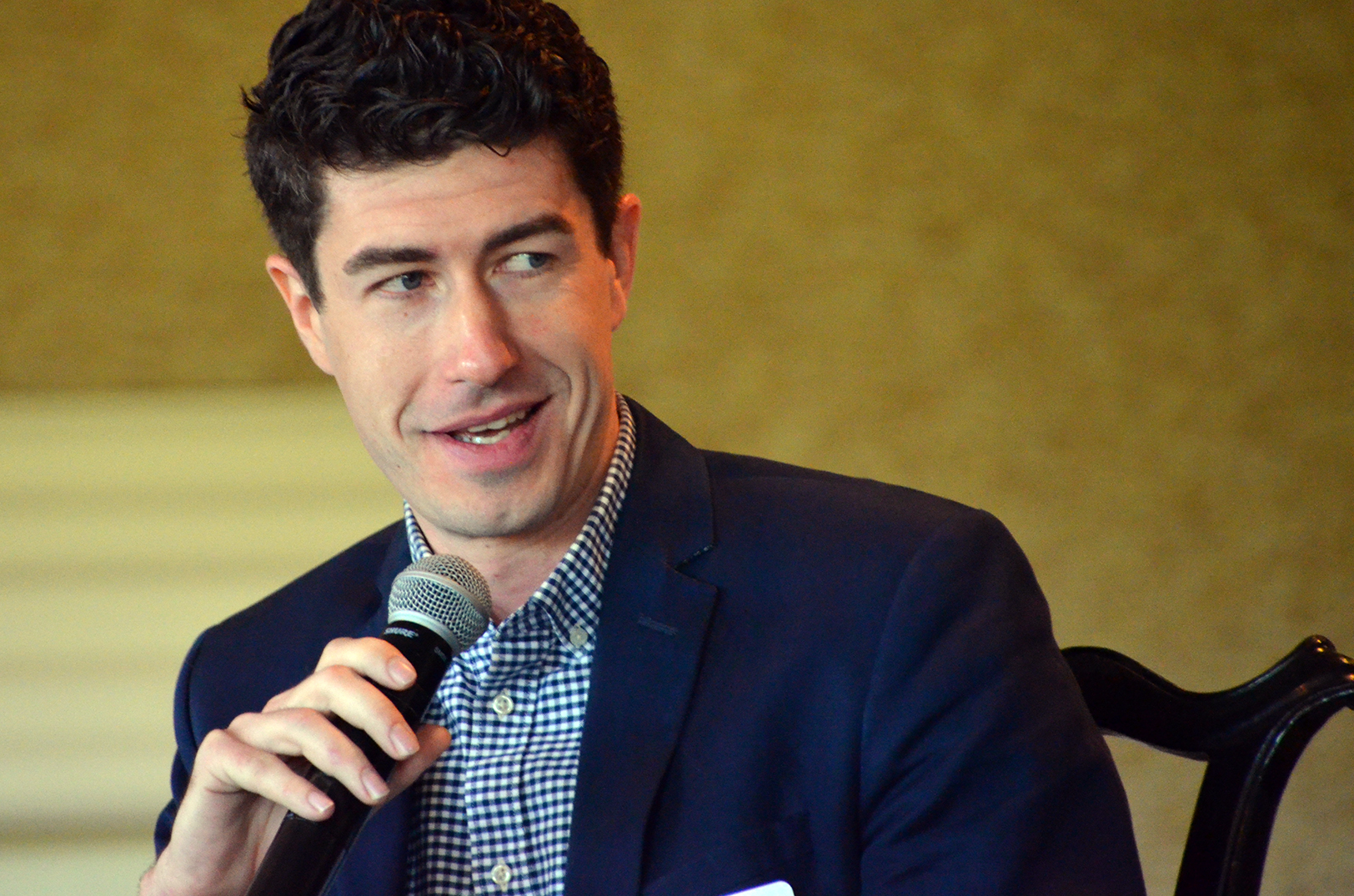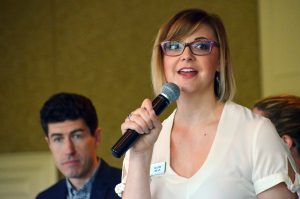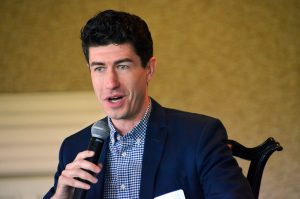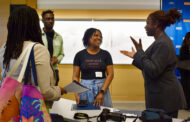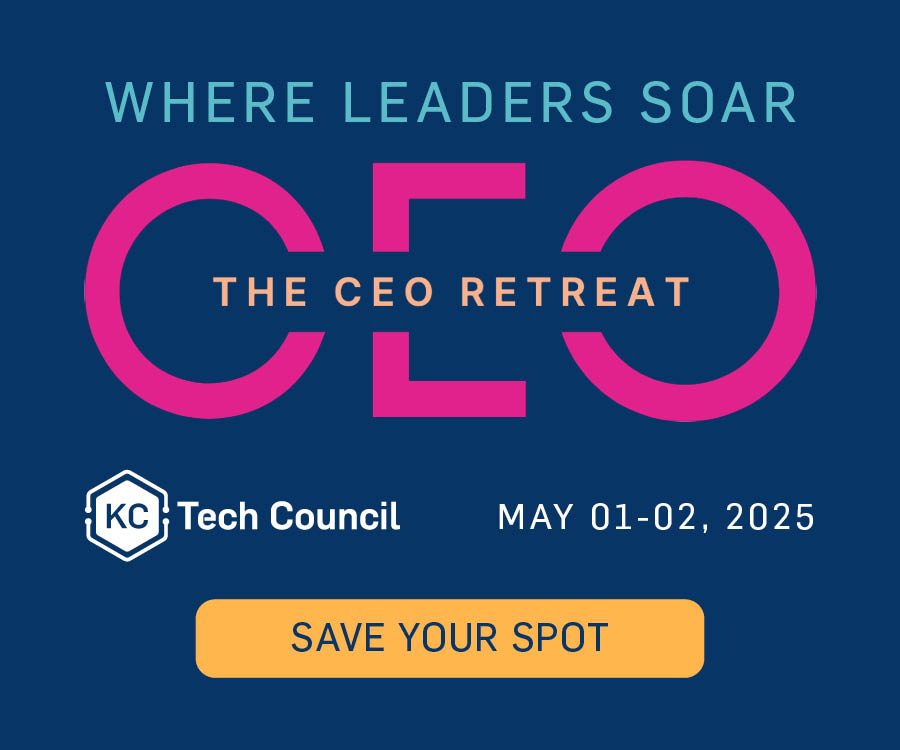Crema’s work is all about proximity, said George Brooks, seeking to clarify potential misperceptions about the digital product agency’s foray into markets outside Kansas City.
“We’ve been running an experiment,” the Crema co-founder told a crowd at Thinking Bigger Business Media’s recent Big Breakfast. “We’re from Kansas City, but probably 80 percent of our clients are not in Kansas City. There’s a lot of opportunity across the country.”
That opportunity has manifested in Crema positioning remote workers in Indianapolis, Boston, Phoenix, and Washington D.C. to help serve far-flung clients across the U.S., Brooks said. Almost all of those remote workers were based in Kansas City and moved, he told Startland.
“Proximity is important to us. We value face-to-face time,” Brooks said. “It’s the reason I don’t outsource any of our development. We want our clients to see our talent, to see the people they’re working with.”
“So we’ve been looking at multiple markets, saying ‘What might it look like to be some place other than Kansas City?’” he added.
Brooks emphasized the company’s experimental use of remote workers rather than establishing full-blown offices in those markets. Crema first ventured outside Kansas City with its move into Indianapolis a year ago, he said, noting a similar Midwest entrepreneur culture.
“There’s an awesome community of technology happening there. Salesforce has done some big acquisitions. There’s a lot of capital moving through that city,” he said. “But I’ll be honest: They keep to their own. They know their people. So we’re still earning respect there.”
Clients in such coast-to-coast second-tier markets all have something in common, Brooks said.
“It’s not Silicon Valley, New York or Austin, but they still want to build tech,” he said.
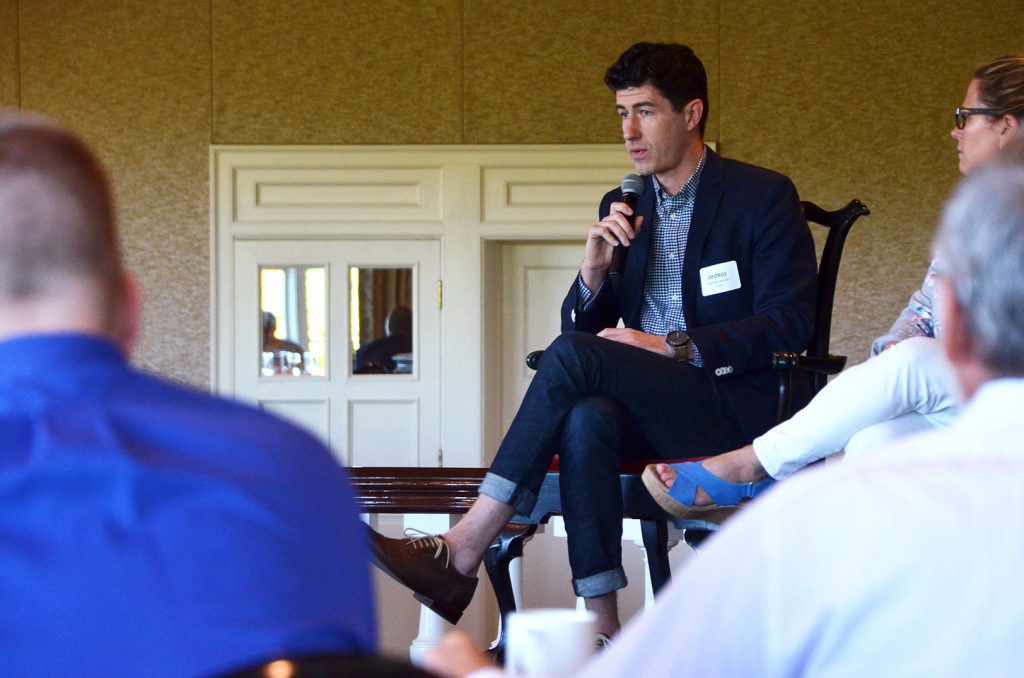
George Brooks, Crema
Crema has experienced significant growth over the past six months, Brooks said, doubling its team to now more than 30. Much of that traction is attributed to a new partnership with one of the top three consulting firms in the world, he said.
“It’s been a really awesome opportunity to actually get through their on-boarding process. For anybody who’s ever tried to work with a large company like that, when you’re a small company, it just hurts until you get through it,” Brooks told the Thinking Bigger crowd. “Now they want to grow with us.”
Crema was Thinking Bigger magazine’s cover story in July.
Seated alongside fellow Big Breakfast panelists — Mandy Shoemaker, Prairie Elder Care; Reggie Gray, Black Privilege; and Jason Zaroor, Advantage PressurePro — the Crema CEO discussed his success in building a solid company culture with the help of co-founder Dan Linhart.
“I am blessed to have never let anybody go or to have fired anyone in nine years. That’s kind of crazy,” Brooks said. “We’ve had people who have left that we probably should’ve let go, but I think they realized they didn’t know the culture.”
Crema’s strategy is to hire “who” first, then “what,” he said.
“We do need talent. We’re in a very technical field and we have to be thinking about: Can you code? Can you design? Can you manage all sorts of things?” Brooks said. “But if we hire someone who does not fit our culture — and it is a very unique culture — then they will not survive in our company.”
“Usually they see their own way out because they realize and they respect us enough to say, ‘You know what, I don’t fit here. I’m better serving at Cerner or H&R Block in a corporate environment,’” he added. “The flexibility [of Crema] isn’t for everybody. Everybody says, ‘Oooh, I want that place,’ but certain people just can’t stand it. They want structure. They want the 8-to-5. They want to clock in and clock out. So we’ve had some hard conversations.”
Technology sector challenges — reflected by a talent gap in Kansas City — make recruiting even more difficult, Brooks said. It’s a task the co-founder attacks personally, he said.
“In order for us to get the right people on the bus, I need a lot of time getting to know that person and understanding who they are, what motivates them — and that’s not always money,” Brooks said. “I’m always recruiting — I’m not always hiring.”
And when the right candidate and the right open position align, closing the deal isn’t as easy as it once might’ve been for the Crossroads-based startup, he said.
“The economy is great right now. [Employers] are paying their people well. They’ve figured out the culture things just like we did. People like their jobs — especially in our industry,” Brooks said. “So convincing them to come over to another business is challenging. It used to be enough to say, ‘I have a skateboard and we wear jeans.’ But that doesn’t work anymore.”




